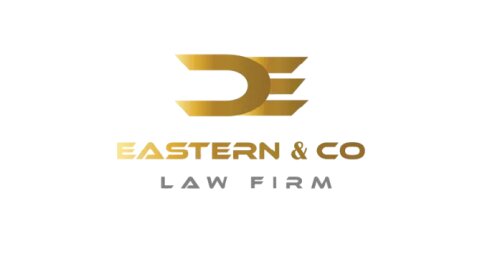Best Fintech Lawyers in Dokki
Share your needs with us, get contacted by law firms.
Free. Takes 2 min.
List of the best lawyers in Dokki, Egypt
1. About Fintech Law in Dokki, Egypt
Dokki is a residential and commercial district in Giza, part of the greater Cairo area. Fintech activity here includes digital wallets, payment services, lending platforms, and regulatory technology solutions. The legal framework governing these activities in Dokki comes from national regulations enforced by the Central Bank of Egypt (CBE), the Financial Regulatory Authority (FRA), and other government bodies. There is no single standalone Fintech law for Dokki or Egypt; instead, licensing, compliance, and enforcement are spread across multiple instruments and circulars.
In practice, Fintech lawyers in Dokki help clients navigate licensing, consumer protection, data privacy, and cross-border issues. An advocate in this field must integrate banking, non-banking financial services, and IT regulatory requirements. The aim is to align a Fintech offering with existing rules while managing risk for investors and end users.
2. Why You May Need a Lawyer
- Launching a digital wallet or mobile money service in Dokki requires precise licensing and ongoing compliance with CBE rules on electronic payments and e-money. An advocate can map the licensing path, draft operating policies, and prepare the necessary applications.
- Licensing a FinTech startup with FRA for non-banking financial activities such as lending, asset management, or payment processing. A lawyer can assemble the required corporate structure, risk controls, and disclosure documents for submission.
- Handling a consumer dispute with a local payment service provider over reversals, refunds, or unauthorized transactions. A solicitor can assess liability, negotiate settlements, and pursue formal remedies.
- Ensuring data privacy and protection under PDPL for customer data processed by a FinTech app. An advocate can draft data processing agreements and implement compliance programs to satisfy regulators.
- Drafting vendor and customer agreements for cross-border payments to address regulatory risk, AML obligations, and service-level expectations. A legal counsel can negotiate terms and limit exposure.
- Structuring equity, investor agreements, or a regulatory sandbox submission where authorities may require detailed disclosures and governance measures. An attorney can prepare the documentation and liaison with regulators.
3. Local Laws Overview
The main regulatory bodies shaping Fintech in Dokki are the Central Bank of Egypt (CBE), the Financial Regulatory Authority (FRA), and the General Authority for Investment and Free Zones (GAFI). These agencies publish rules, licensing criteria, and supervisory guidance that Fintech firms must follow to operate legally in Egypt.
Central Bank of Egypt - Regulations for Electronic Payments and PSPs
The CBE oversees banks and non-banking payment service providers, including wallet providers and digital banking services. Regulatory instruments cover licensing, capital requirements, AML/KYC procedures, and consumer protection standards. Recent updates emphasize secure digital payments, interoperability, and risk management for electronic platforms. For official guidance, see the CBE’s publications and circulars available on their site.
Financial Regulatory Authority - FinTech Licensing and Non-Banking Activities
The FRA regulates non-banking financial activities that FinTechs may engage in, including lending and investment-style services offered through digital platforms. FRA guidance covers licensing pathways, governance requirements, prudential standards, and ongoing supervision. FRA documents help determine whether a FinTech falls under non-banking regulation or requires additional approvals. See FRA’s official materials for details on licensing and supervision.
General Authority for Investment and Free Zones - Incorporation and Investment Rules
GAFI acts as Egypt’s primary investment regulator and issues licensing guidance for new ventures, including FinTech startups in free zones or other investment schemes. GAFI facilitates incorporation, registration, and access to incentives, red tape reduction, and compliance with investment laws. Refer to GAFI’s official resources for the latest registration steps and obligations.
Personal Data Protection and IT Security
Egyptian data protection laws impact FinTechs handling customer information. The Personal Data Protection framework governs processing, storage, and transfer of personal data, with implementing rules issued by competent authorities. FinTechs should implement data processing agreements, privacy notices, and secure data handling procedures to remain compliant.
For reference, the Central Bank of Egypt and the Financial Regulatory Authority jointly oversee key FinTech activities in Egypt. See official guidance from Central Bank of Egypt and Financial Regulatory Authority for licensing, AML, and consumer protection requirements.
4. Frequently Asked Questions
What is Fintech law in Dokki, Egypt?
Fintech law in Dokki combines banking and non-banking regulations; there is no single Fintech statute. Compliance relies on CBE and FRA rules, plus data protection laws. An advocate can interpret how these interact for your product.
How do I license a digital wallet in Dokki?
Begin with a legal assessment of whether your service is a PSP or an e-money issuer. Prepare licensing documents, AML/KYC policies, and risk controls for submission to the CBE. An advocate can manage the process end-to-end.
When did the main data protection law take effect in Egypt?
The Personal Data Protection regime began in 2020, with implementing rules rolling out over subsequent years. FinTechs should implement data processing agreements and privacy notices now to stay compliant. See official guidance from IT regulators for updates.
Where can I file a complaint about a fintech service in Dokki?
Consumer complaints typically go to the relevant regulator or the banking ombudsman channel through regulatory portals. An advocate can advise on the correct regulator and filing process for your case.
Why do I need a local advocate for FinTech licensing?
Local counsel understands Egyptian registration requirements, language, and procedural nuances. They can prepare documents in the right format and coordinate with authorities to avoid delays.
Do I need a local Egyptian address to register a FinTech company?
Yes, most registrations require a local address and a registered office. An attorney can guide you on acceptable arrangements and help secure a compliant address for filings.
Is a PSP license enough to operate a payments app?
Often not. Depending on services offered, FRA licensing or additional regulatory approvals may be required. A lawyer can map the exact regulatory path for your business model.
Can a foreign company operate a FinTech service in Dokki?
Foreign entities can operate after meeting local registration and regulatory requirements. They typically need a local presence and may be subject to additional scrutiny and licensing steps.
Should I hire a lawyer for corporate structuring and regulatory compliance?
Yes. Proper corporate structuring minimizes regulatory risk and ensures ongoing compliance with CBE, FRA, and data protection rules. An advocate can draft governing documents and compliance programs.
Do FinTechs need data processing agreements with third parties?
Yes. PDPL requires clear data processing terms with third parties handling customer data. A lawyer can draft and review these agreements to reduce liability.
How long does licensing typically take in Dokki?
Processing times vary by license and complexity. It can range from several months to over a year. An advocate can provide a realistic timeline based on your case.
What is the difference between a PSP license and a banking license?
A PSP license covers payment services and e-money activities, while a full banking license authorizes deposit taking and traditional banking operations. A lawyer can determine which fit your business model.
5. Additional Resources
These organizations offer official information and regulatory guidance relevant to Fintech in Egypt:
- Central Bank of Egypt (CBE) - Regulates financial institutions and electronic payment services; publishes rules on PSPs and digital payments. cbe.org.eg
- Financial Regulatory Authority (FRA) - Supervises non-banking financial activities, licensing, and FinTech governance. fra.gov.eg
- General Authority for Investment and Free Zones (GAFI) - Provides investment licensing, registration, and regulatory guidance for startups including FinTechs. gafi.gov.eg
6. Next Steps
- Define your product and regulatory path - Create a one-page description of your FinTech offering and identify whether it fits PSP, e-money, or non-banking services. Timeline: 1 week.
- Conduct a regulatory gap analysis - Compare your model against CBE and FRA requirements to identify licensing needs and compliance gaps. Timeline: 2-3 weeks.
- Engage a Dokki-based advocate specializing in FinTech - Find an attorney with experience in licensing, contracts, and data protection. Timeline: 1-2 weeks to select counsel.
- Prepare the licensing package - Assemble corporate documents, AML/KYC policies, risk management frameworks, and regulatory forms. Timeline: 4-8 weeks depending on license.
- Submit to the appropriate regulator - File with CBE for PSP/e-money or FRA for non-banking activities, and coordinate with GAFI if you require investment-related approvals. Timeline: 3-6 months for initial decisions.
- Implement data protection and vendor contracts - Draft PDPL-compliant data processing agreements and privacy notices. Timeline: 2-4 weeks post-licensing.
- Plan ongoing compliance and audits - Set up annual reviews, regulatory reporting, and contract renewals. Timeline: ongoing with annual cycles.
Lawzana helps you find the best lawyers and law firms in Dokki through a curated and pre-screened list of qualified legal professionals. Our platform offers rankings and detailed profiles of attorneys and law firms, allowing you to compare based on practice areas, including Fintech, experience, and client feedback.
Each profile includes a description of the firm's areas of practice, client reviews, team members and partners, year of establishment, spoken languages, office locations, contact information, social media presence, and any published articles or resources. Most firms on our platform speak English and are experienced in both local and international legal matters.
Get a quote from top-rated law firms in Dokki, Egypt — quickly, securely, and without unnecessary hassle.
Disclaimer:
The information provided on this page is for general informational purposes only and does not constitute legal advice. While we strive to ensure the accuracy and relevance of the content, legal information may change over time, and interpretations of the law can vary. You should always consult with a qualified legal professional for advice specific to your situation.
We disclaim all liability for actions taken or not taken based on the content of this page. If you believe any information is incorrect or outdated, please contact us, and we will review and update it where appropriate.









